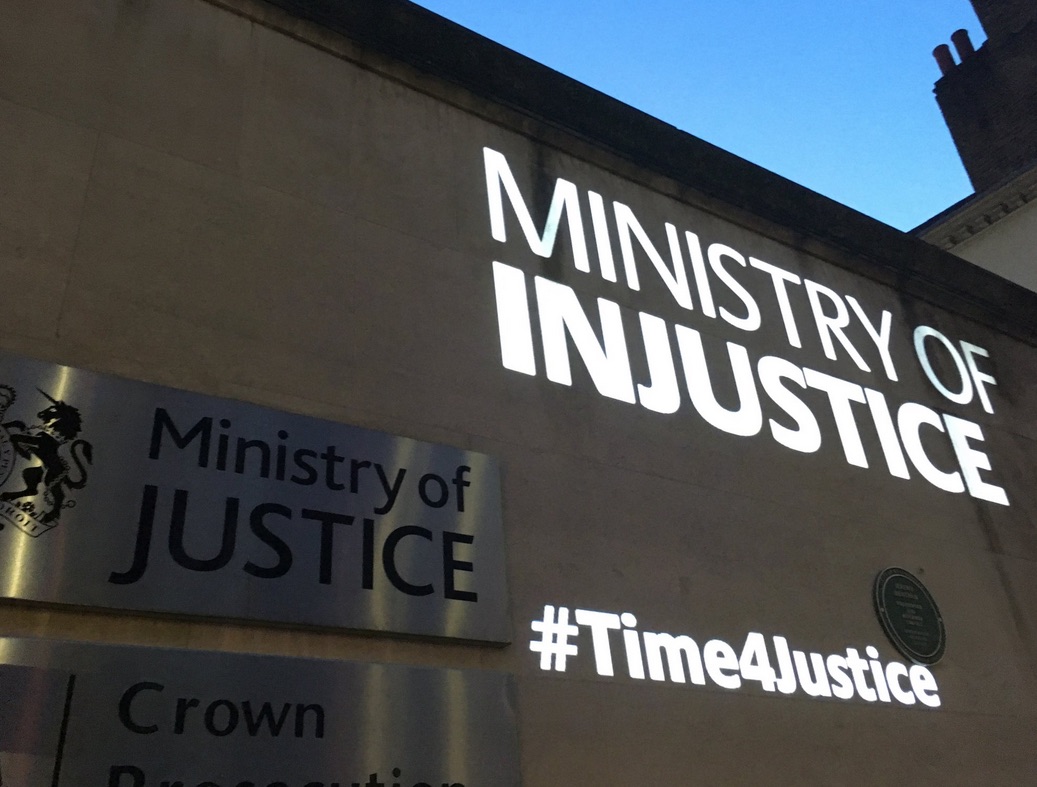Justice system under pressure as barristers step up protest
Defence solicitors this morning told MPs about the pressures on the criminal justice system as a result of the Bar’s action. Richard Miller, the Law Society’s head of justice, and Daniel Bonich, vice chair of the Criminal Law Solicitors’ Association, appeared before the House of Commons’ justice committee. Miller told the committee earlier that Chancery Lane had just issued guidance to members ‘reminding them of their professional obligation not to undertake work that was beyond their competence’. ‘There is a real concern from reports that we are getting that our members are being put under pressure to undertake work that they do not feel suited to undertake,’ he said.
Earlier this month it was reported that ‘more than 90%’ of members of the Criminal Bar Association had come out in support of the action as barristers stepped up their protest over cuts to advocacy fees. Daniel Bonich said that the protest had yet to effect trials. ‘But that will come quite soon,’ the solicitor advocate said; adding that sentencing and pre trial preparation hearings were already proving ‘extremely problematic’. ‘There are are huge variances between court centres. We are aware of reports of cases where judges have decided that cases should proceed where the defendant is not only entitled to counsel but has asked for counsel and solicitors have contacted between 80 and 100 chambers to find barristers and the public defenders not available. Solicitors are doing their best.’
Bonich said the action placed ‘an awful lot pressure’ on the profession. ‘In some courts judges are directing solicitors to attend the hearing and to conduct it themselves. There have been some reports of cases where some non-qualified people have effectively been bullied by the judge to conduct the hearing.’ He reported that in one instance a secretary ended up conducting a sentencing hearing. ‘That’s worrying. We are aware of one case at Isleworth [Crown Court] where someone did a life sentence without counsel. That is wholly unacceptable. It casts a shadow over our justice system.’
‘We recognise why the Bar has taken the action; but it has placed solicitors under a huge amount of strain. We are the client-facing profession. We are the ones that have to explain why it is they don’t have counsel… . If we are to continue to sell ourselves as a country which prides itself on the rule of law, then it’s not going to help our international reputation having secretaries represent people on serious matters.’
Daniel Bonich
The two lawyers were given an opportunity to explain to MPs the impact of the long term rates freeze had on the defence profession. The criminal legal aid scheme started in 1988 but the last annual uprating of those fees took place in 1998. At the start of the scheme, fees were ‘broadly commensurate with the returns from private work’, Miller explained. ’But twenty years of no inflationary increases, plus a series of very significant cuts, and we are in a position where legal aid rates are at most a third of the rates paid for private work,’ he added.
Bonich said that there had been a 42% cut just ‘factoring in the inflationary loss… without taking into account the actual cuts’. The commitee chair Bob Neill asked how firms had ‘absorbed’ the 8.75% cut in 2014? ‘With great difficulty,’ Miller replied. ‘We have seen a drop somewhere in the region of between 300 and 400 firms undertaking criminal legal aid work. So there are now only 1,300 firms as opposed to 1,600 four years ago.’
The committee appeared sympathetic to the concerns. The Conservative MP Victoria Prentis called on the profession to evidence the claims. ‘What you are telling us is really frightening and has serious implications for the entire justice system,’ she said. Daniel Bonich made the point that ‘doubling the legal aid budget would add 0.2% to government spend’. ‘Whilst we accept we are where we are, it is worth noting that the MoJ budget, which is predicted to fall, is currently about £7.5 billion; but it raises £1.6bn from court fees and fines etc which is about the same as the legal aid budget. So in terms of money available for legal aid, there isn’t any – it’s self financing.’ Another Tory MP Alex Chalk said his ‘favourite statistic at the moment’ was that ‘we spend more on the aid effort in Syria alone, £2.5bn, than the entire legal aid budget.’
This article was first published on May 22, 2018







